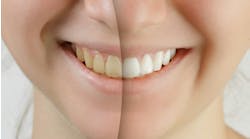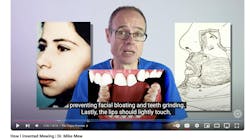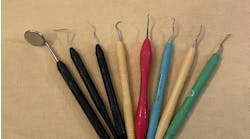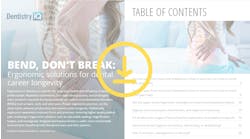Studies at the University of Pennsylvania suggest that a new computerized teaching method helps future dentists learn these skills twice as fast as in previous instructional techniques.
Judith Buchanan of Penn's School of Dental Medicine, principal investigator in the three studies, said using advanced dental simulators to teach proper preparation avoids the personal variables inherent in human instruction.
In fact, a series of studies during three years at Penn suggests that students using this virtual reality-based technology learn the psychomotor skills needed in dentistry at twice the rate of those who are trained using conventional methods.
Based on the results of Buchanan's work, all incoming Penn dental students will learn proper drilling and other techniques on plastic teeth in a mannequin connected to a computer. The computer provides immediate feedback on positioning, depth and accuracy of their work.
´´The dental simulators provide constant computerized evaluation of a student's preparation,´´ Buchanan said. ´´Each student gets color-coded feedback during the process, not just at the end.´´
Previously, in learning these cavity preparation assignments, dental students would drill as instructed into a plastic tooth set in a simulated jaw that opened 180 degrees, unlike the human jaw. With the simulator, the mannequins' mouths open naturally, and students have to beware of the cheeks and gums.
Buchanan's research tested the efficiency of this methodology by comparing the students' rates of learning three ways: using only the previous instruction method with professor feedback, using the advanced simulator exclusively and, finally, using the computerized instruction in combination with instructor feedback. The combination method yielded the best student learning, Buchanan said.
Another benefit to the simulator is that it mitigates the students' apprehension about treating real patients, Buchanan said. They can practice a complicated filling or crown procedure as much as needed and must demonstrate a required level of competency before actually performing the procedure in a patient's mouth.
Twenty-five percent of the overall dental school curriculum is related to psychomotor skill development, she said.
In addition to helping students' acquire clinical skills more efficiently, the simulators also use beeps and bells to remind the aspiring dentists to sit properly oriented to the patients with the correct posture and tool angles.
In 1998, Penn Dental was the first dental school in the world to incorporate instruction on an advanced simulator into the required curriculum before students were permitted to work on patients. This year, with a new 15-unit lab in place, Penn Dental became a leading school in the nation in enabling and requiring incoming students to take part in the computerized instruction throughout their entire first two years of study, beginning in freshmen orientation.





